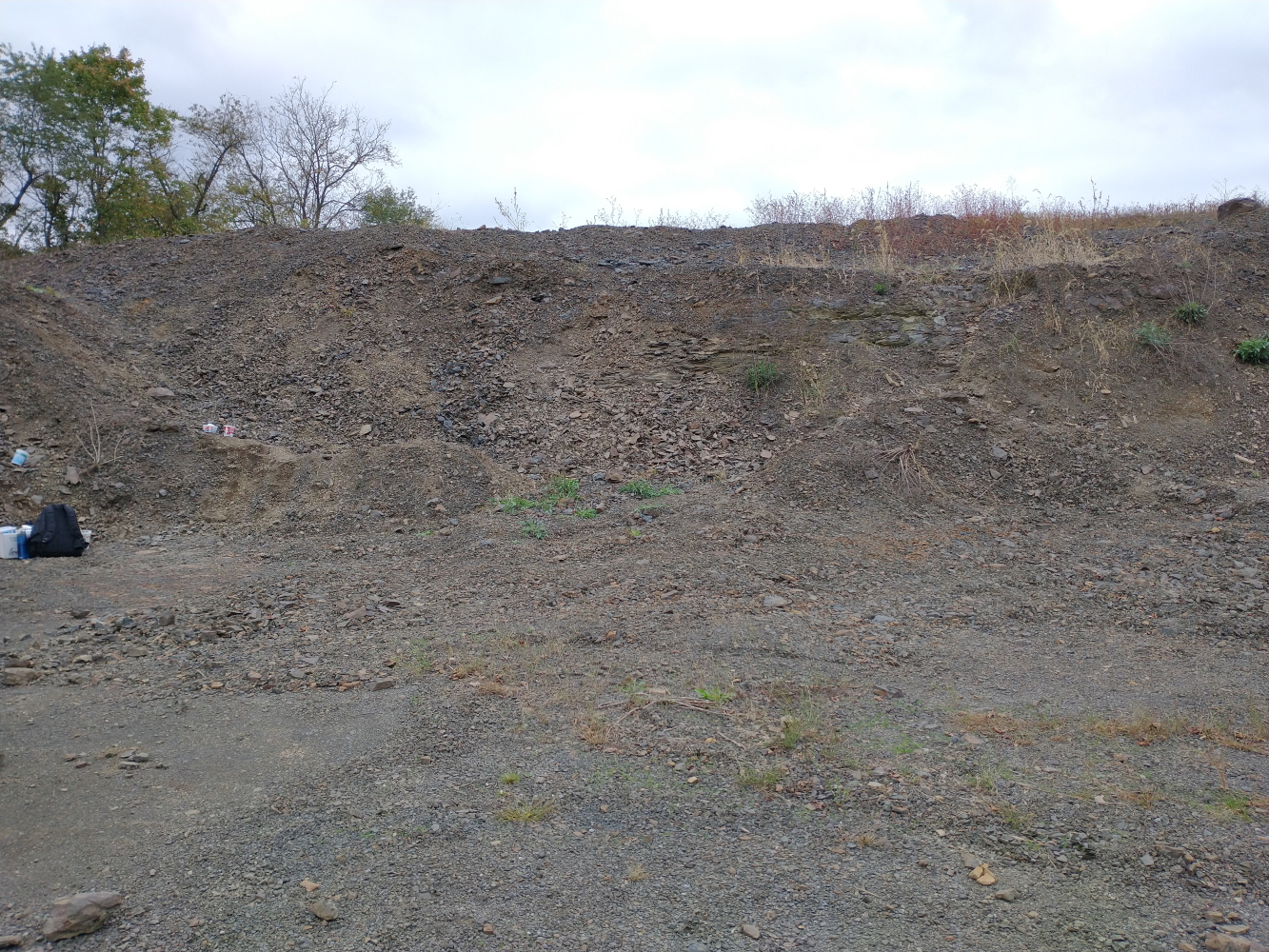
This abandoned quarry isn’t completely dry…
On Monday, I went to Seven Stars quarry, a place once quarried for brick making material. This same quarry was once home to a thriving ecosystem, full of clams, coral, trilobites, lamp shells, cephalopods, and crinoids. Seven Stars is about an hour from where I live, not nearly as long a drive as Red Hill, which I talked about in my previous fossil hunting post.
When I got to Seven Stars Quarry, I walked around to see where I wanted to start. After finding several shells near the top of the exposure, I decided to start there. I brought up a few containers and started to hunt. The ground was littered with shells! Hash plates were really common up here, and crinoids were pretty frequent finds as well. After a while, I decided to go back to the bottom. I hadn’t found any of the Dipleura trilobites Fossilguy promised, and I thought I may have seen one near the road (this didn’t turn out to be a trilobite as I’d wished). I went back down, and found that while fossils weren’t quite as common down here, they were bigger and better. Gastropods (snails), Mediospirifer, Mucrospirifer, other shells, Orthonota (also known as the razor clam), and – trilobites! I found a few small fragments of Dipleura segments, covered in tiny bumps. I found small, strange circular sections that weren’t crinoids, but didn’t look like coral either. I found fossils that were definitely coral, but these weren’t common at all.
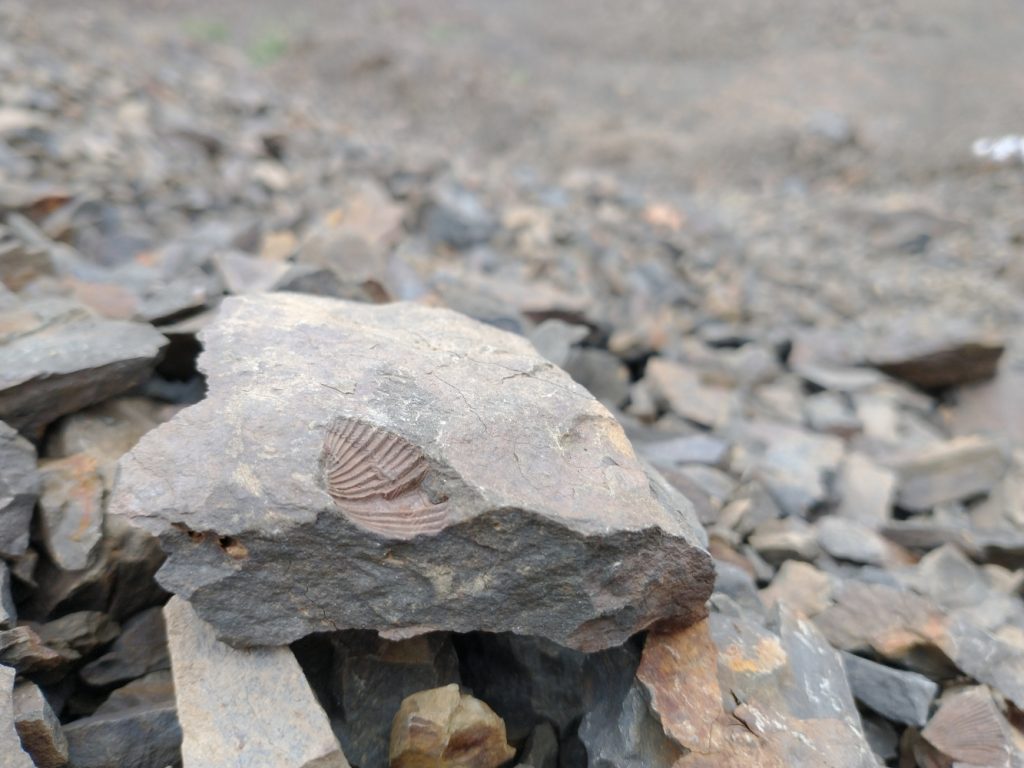
I moved down again, closer to the road, and kept finding things. At the far bottom left, I found two Greenops pygidiums, and some more shells. When I stopped to eat lunch, I found even better fossils in the pull over where I accessed the quarry. I figured that these might have been fossils either discarded or forgotten by other fossil hunters, but they seemed pretty good to me. Then, I moved over to the right, where there was a little rise or pile. And that’s when I found some more trilobites! That little pile was full of them, a little Dipleura colony. I had to leave soon after that, but I had more fossils than I ever had from a single hunt.
Back home
When I got home, I immediately started classifying and organizing, putting the fossils in containers and labeling them. It was then that the important discoveries were made! I emailed my friend, who’d done more research on the place, and he asked me if I’d found any Bactrites. I suspected maybe one of my fossils, but I hadn’t expected to find that the little circular sections were Bactrites sections! I also found out I’d found an ammonoid, similar to one I found at Swatara Gap. I’d identified this as Koenenites, because of its sharp keel and wide umbilicus, but this one had a slightly blunter keel and a narrow umbilicus, like Tornoceras. Swatara Gap was the only other place I’d found two species of cephalopods, Michelinoceras and Koenenites. This ammonoid would only have been a little more than half an inch (1.5 centimeters) across, instead of the almost inch and a half (3.5 centimeters) of the Koenenites. This was my second Devonian ammonoid, and my first Bactritid.
I also found that I had many more trilobites than I had thought in the field, including part of a cephalon that would have belonged to a Dipleura 8.5-9 inches (23-25 centimeters) long! (my friend who accompanied me on the Red Hill trip later found part of a segment that would have belonged to a Dipleura possibly more than a foot long!) I found one of the most articulated trilobites I ever found, and a lot of segment fragments. These can easily be identified as Dipleura not only on their shape but even more so the little bumps that cover them. I then realized that one of my fossils that looked like it only preserved a few segments on one side had a half complete cephalon on the other. All I had to do was flip it over! This was the same story as one of my best Eldredgeops cephalons, with a big Mucrospirifer on the other side. Seven Stars would be a really good place to visit if you are a beginner in that the fossils are easy to find here, and they are not disapointing at all. Before you go, though, consult my post about what to bring and expect when fossil hunting.
What I found
Here are some pictures of some of the better fossils I found at Seven Stars.
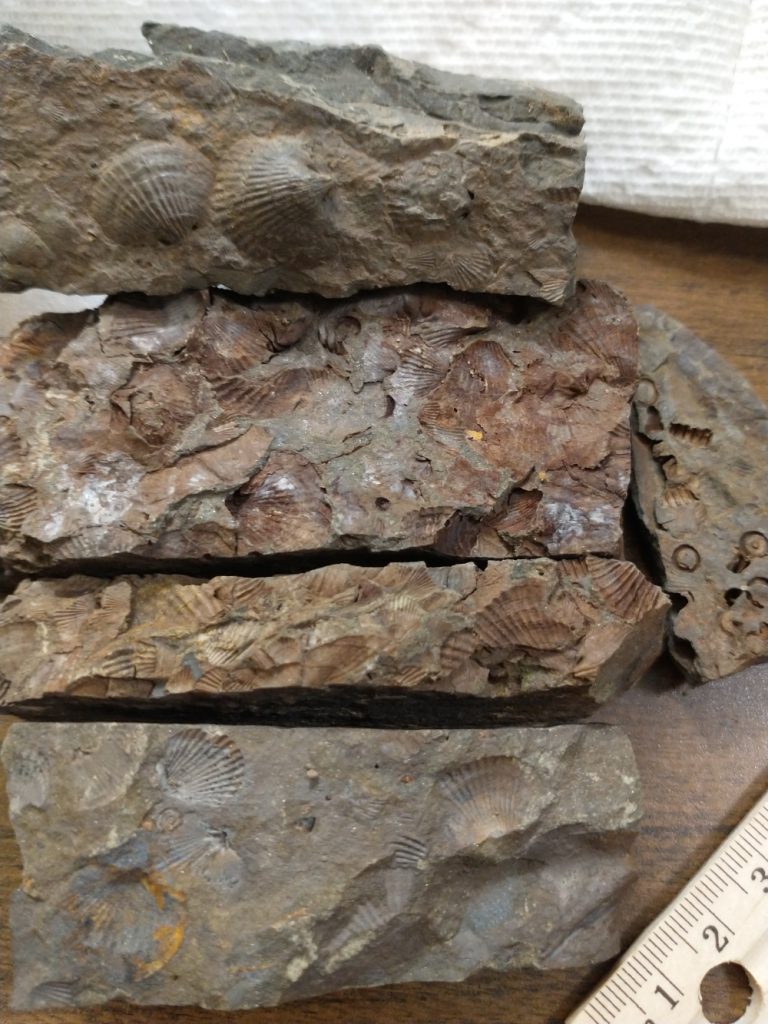
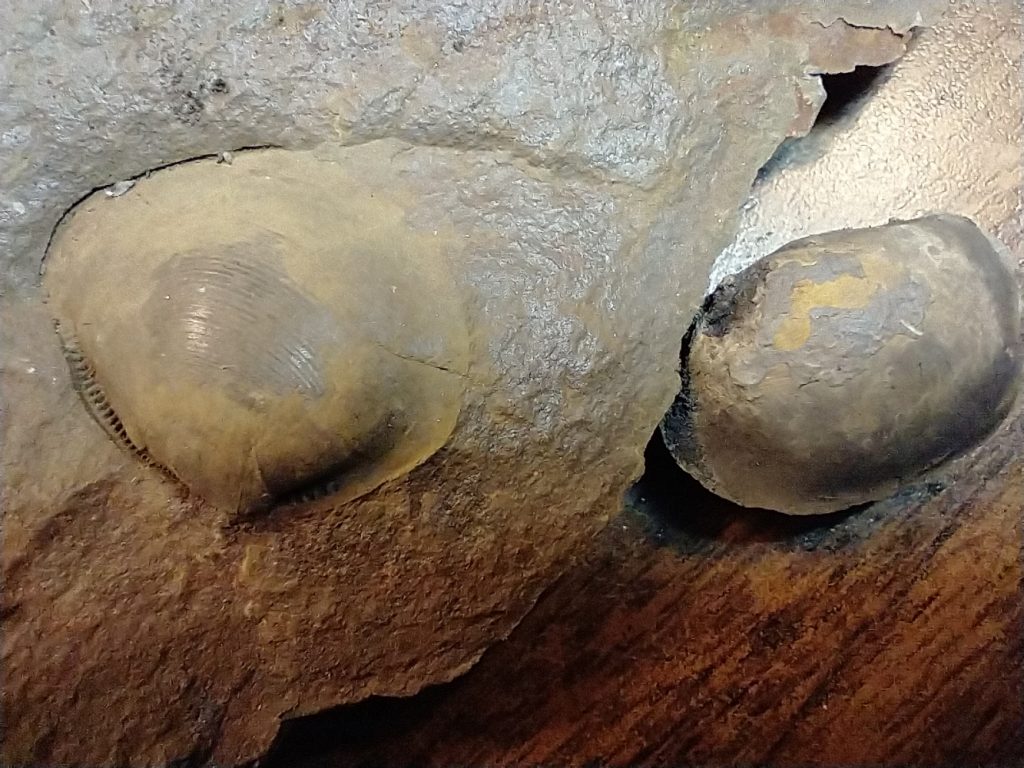
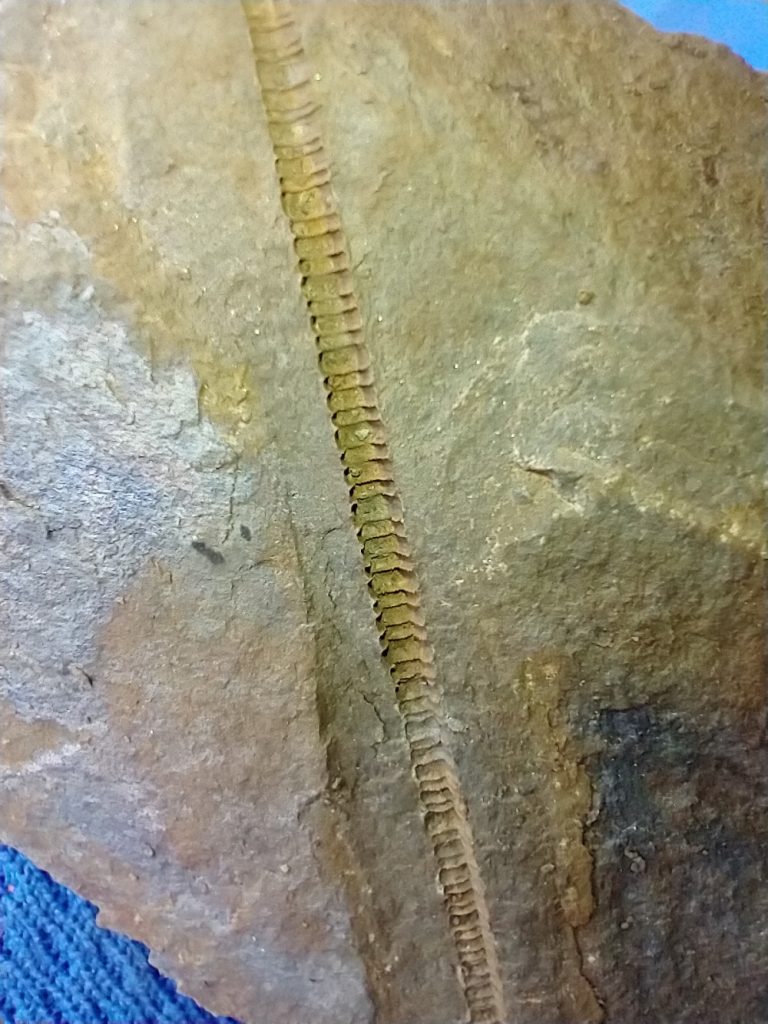
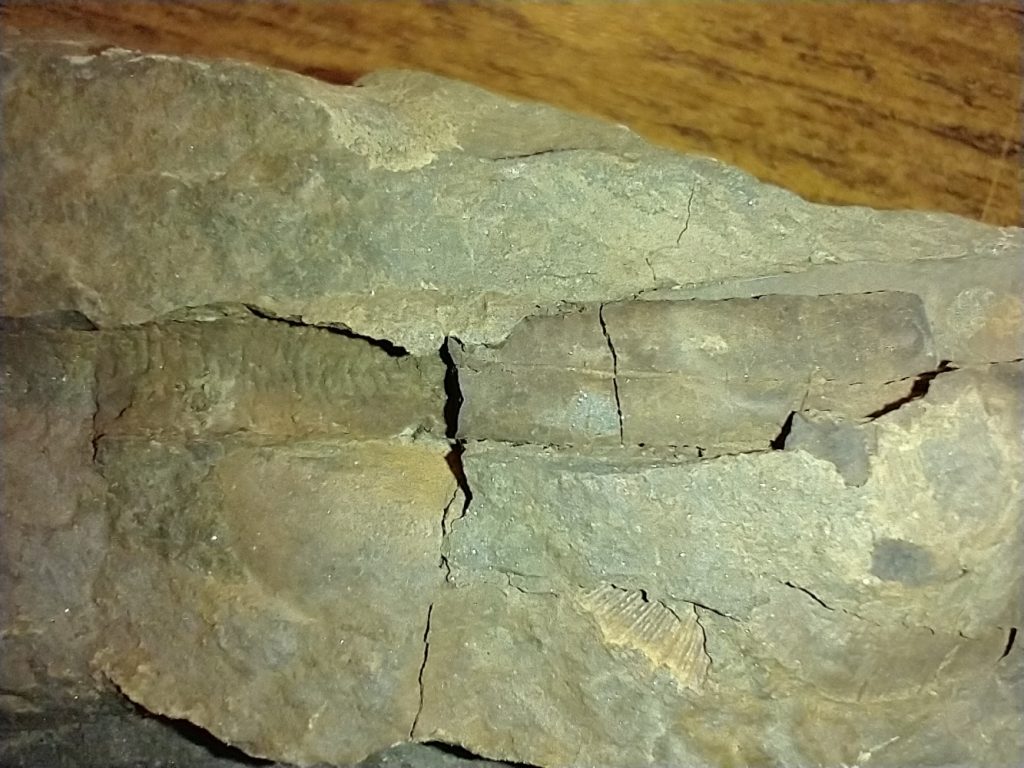
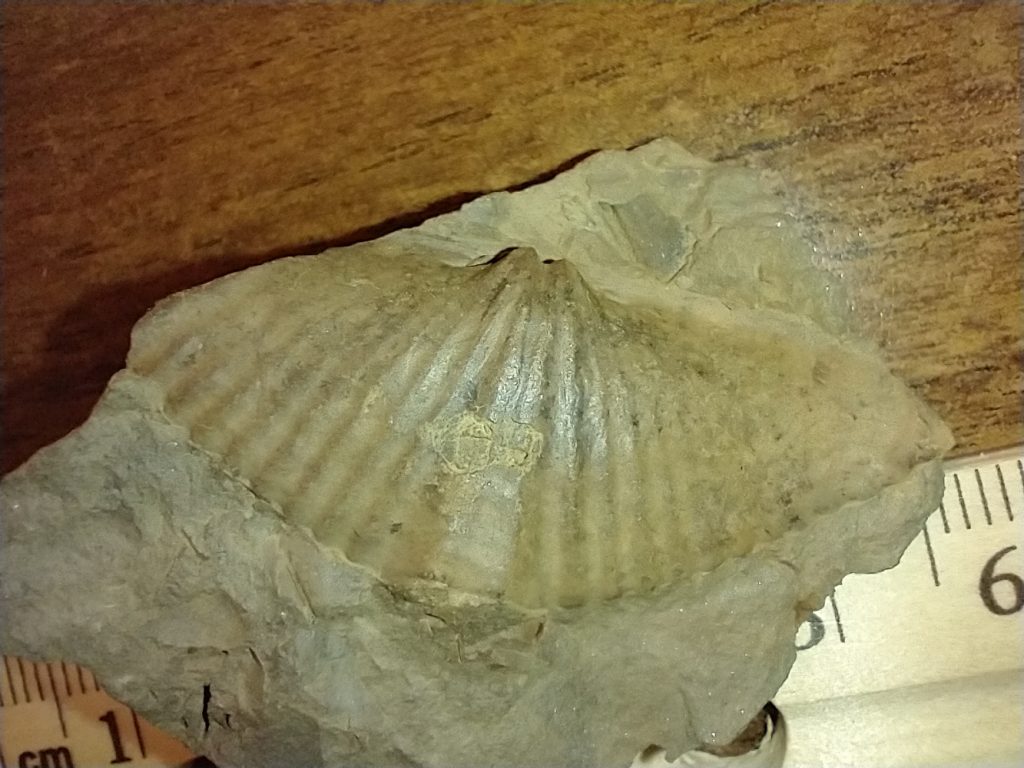
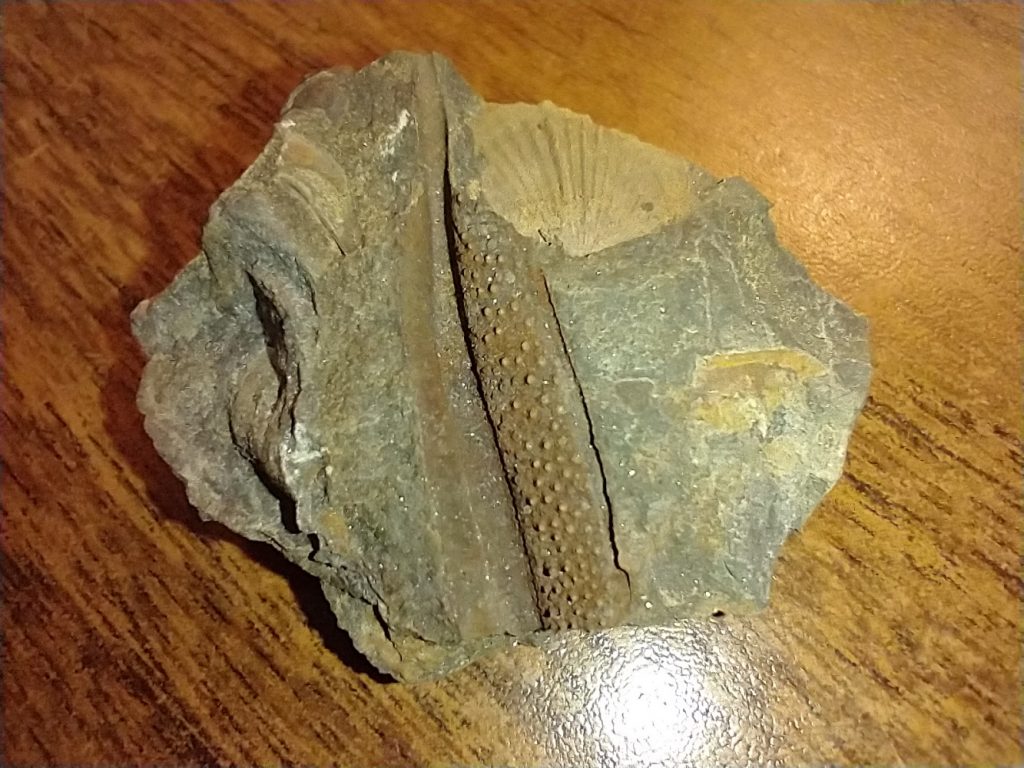
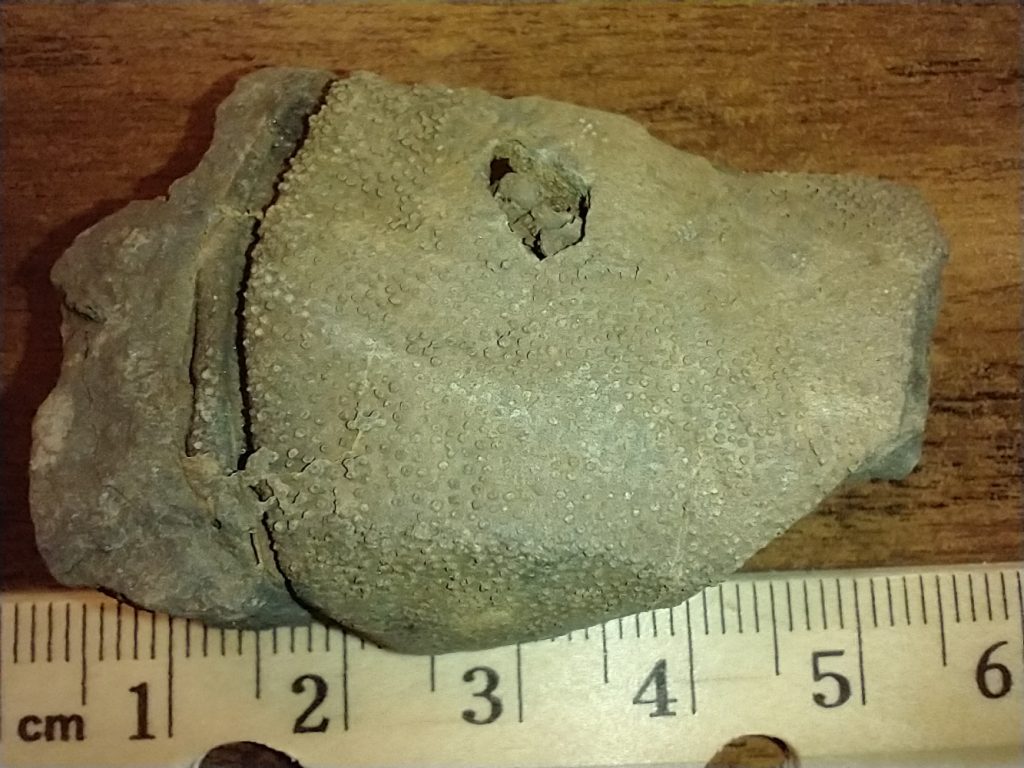
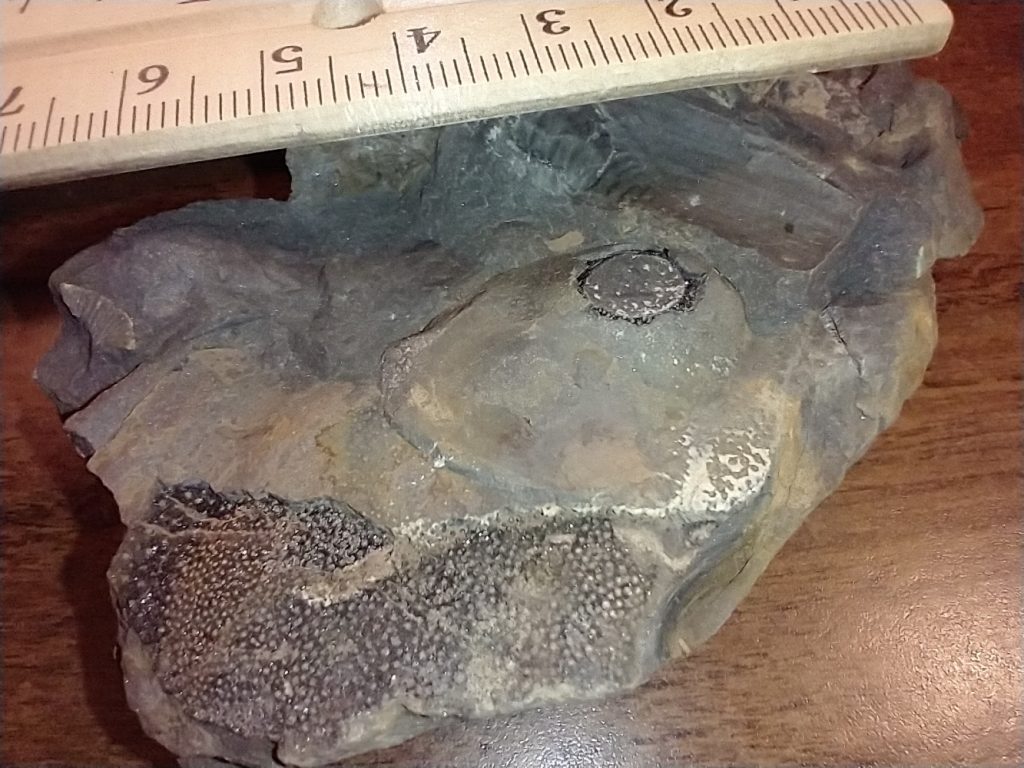
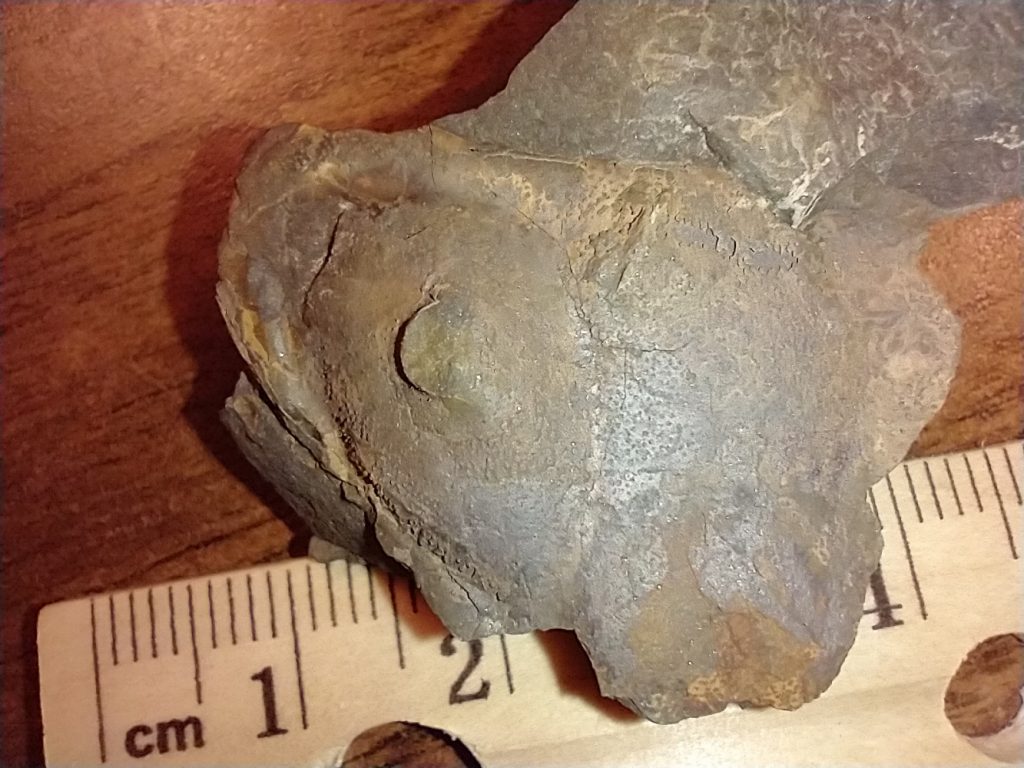
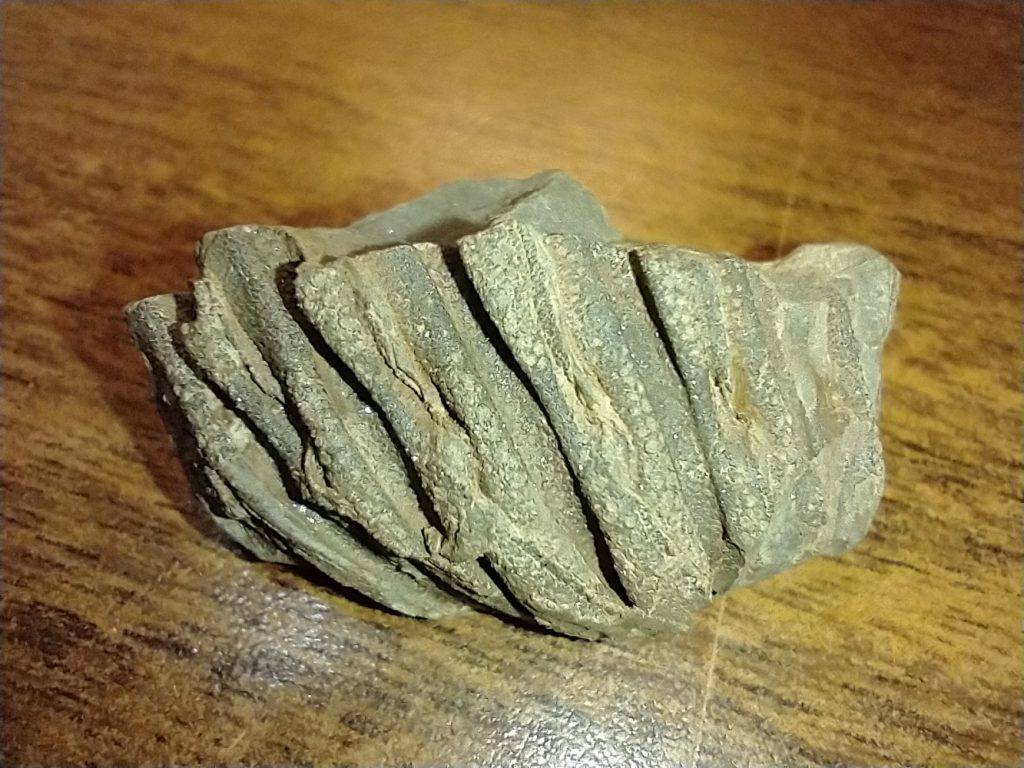
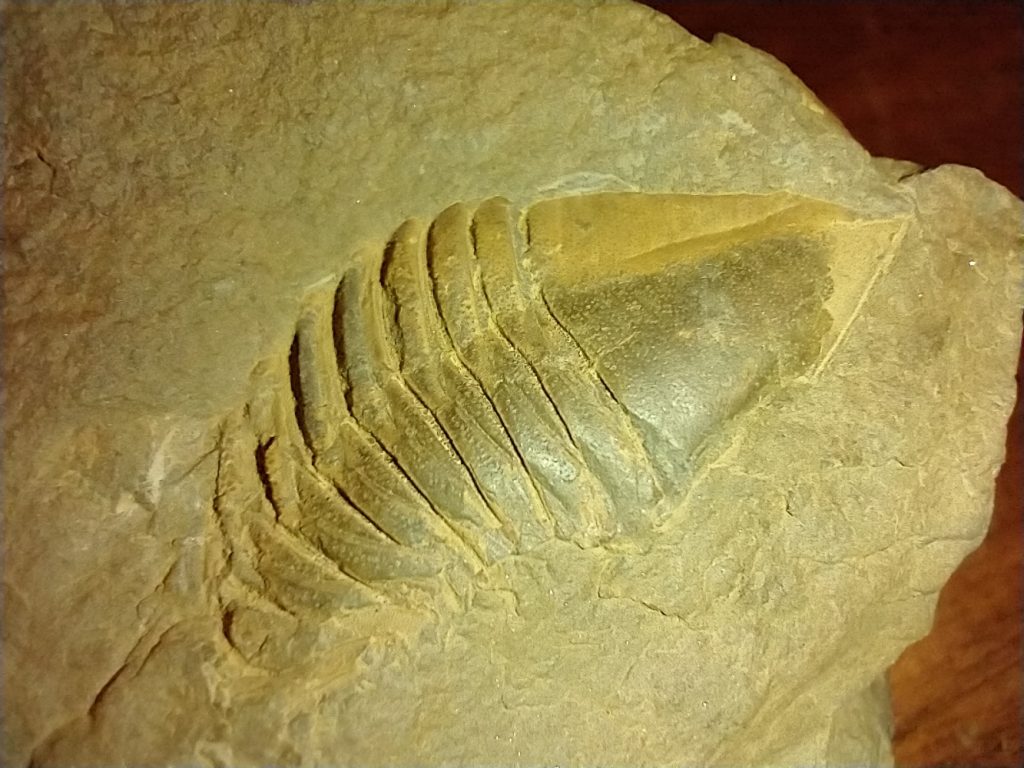
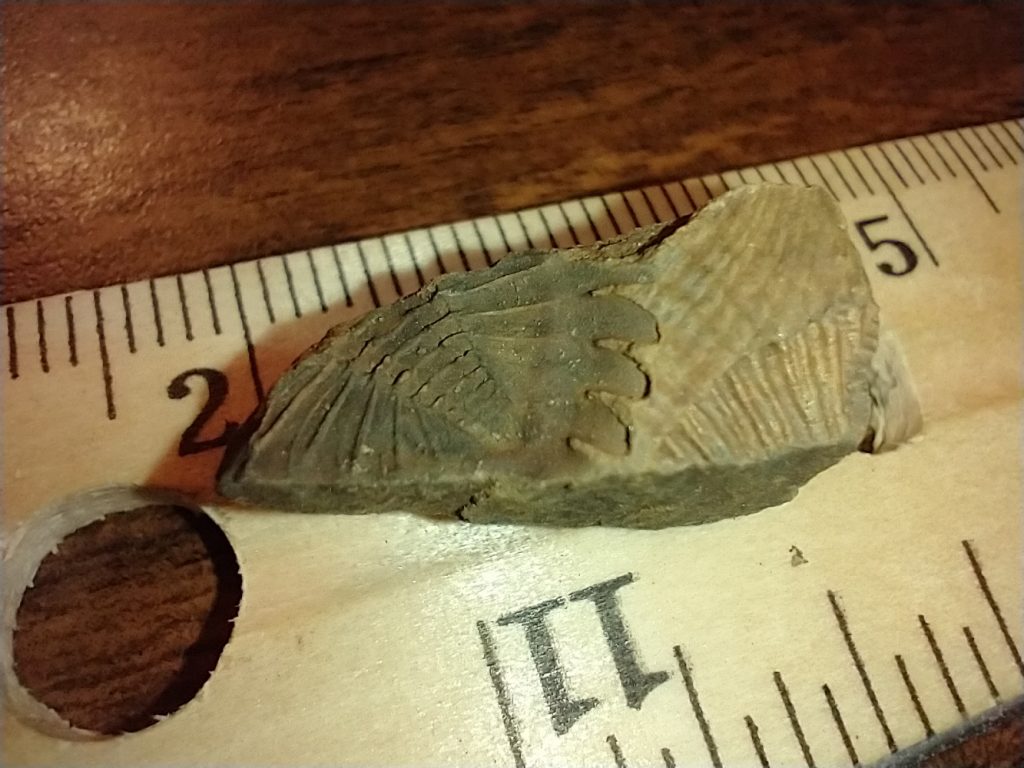
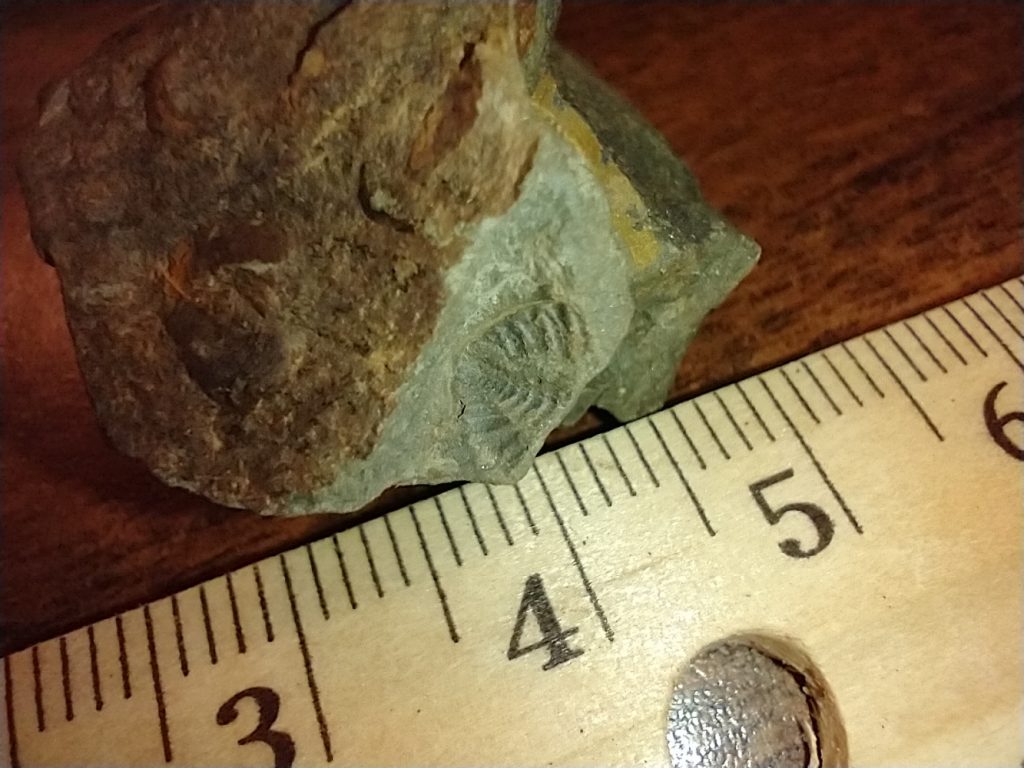
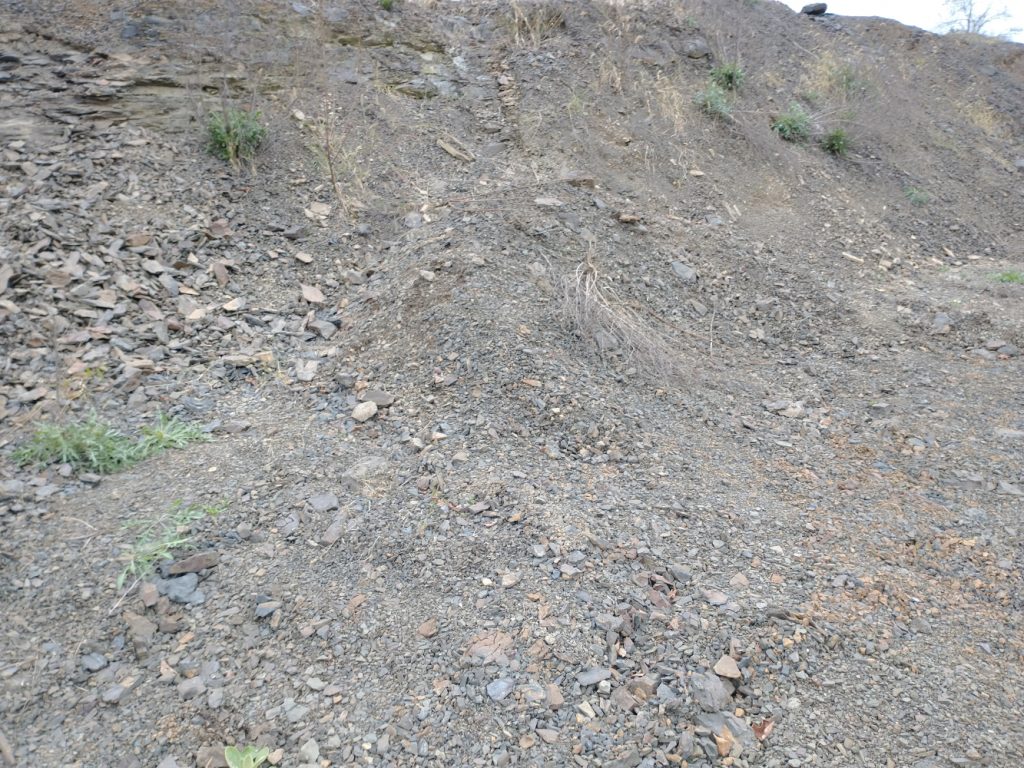
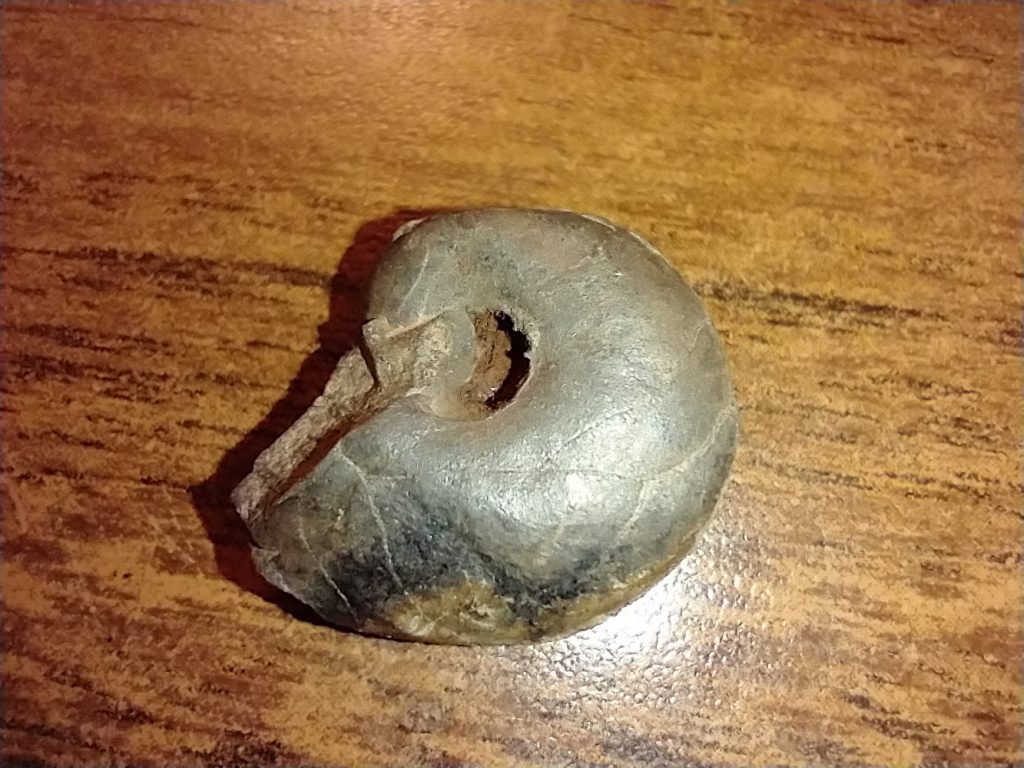
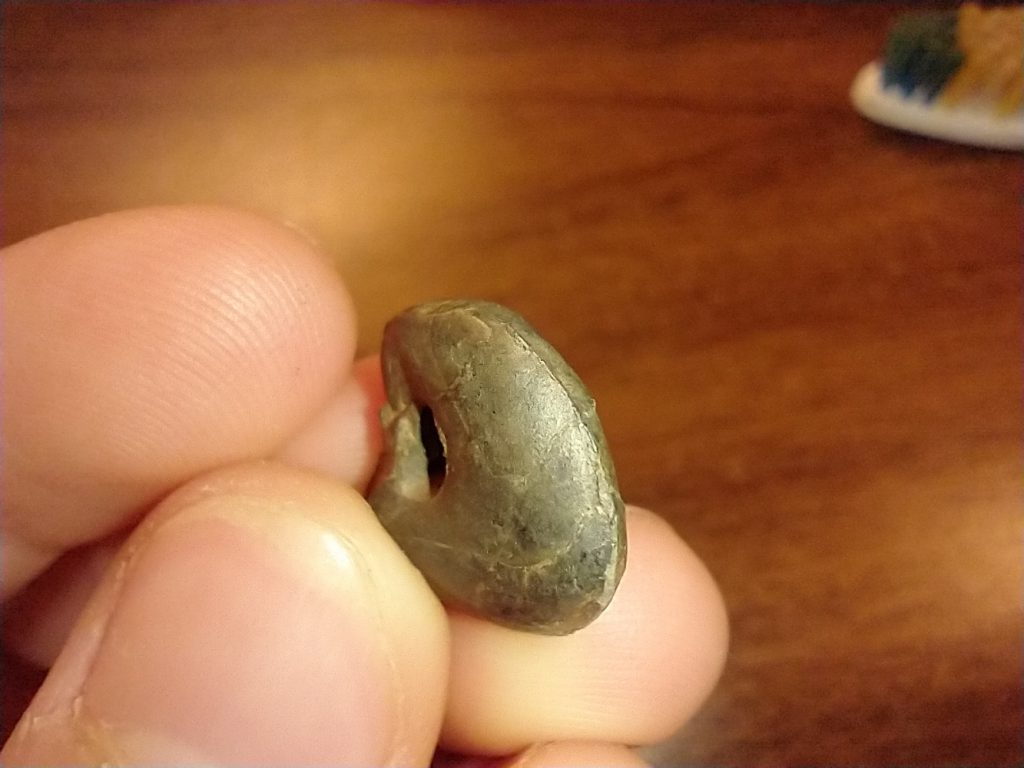
Sources
https://www.fossilguy.com/trips/mahantango-2017/index.htm
